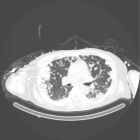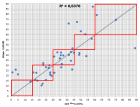Abstract
Review Article
Prospective Coronavirus Liver Effects: Available Knowledge
Avishek Mandal*
Published: 18 August, 2023 | Volume 7 - Issue 1 | Pages: 001-010
The global pandemic COVID-19, caused by SARS-CoV-2, affected millions of people. COVID-19 is known for its respiratory symptoms, but new research reveals it may also affect other organ systems, including the liver. This abstract reviews COVID-19 and liver function. The virus enters host cells through liver-expressed angiotensin-converting enzyme 2 (ACE2) receptors. Thus, viral infection and replication may target the liver. Virus-induced inflammation and cytokine production may also harm the liver. ALT and AST elevations are the most prevalent liver abnormalities in COVID-19 patients. Liver function test abnormalities frequently indicate serious illness and poor clinical outcomes. COVID-19 may worsen pre-existing liver diseases such as NAFLD and chronic viral hepatitis. Drug-induced liver damage (DILI) from COVID-19 therapies including antivirals and corticosteroids complicates liver complications care. Recent investigations have also shown that COVID-19 may cause long-term liver damage. In conclusion, COVID-19 infection, immune-mediated damage, and treatment problems may severely compromise liver function. Optimizing patient treatment and discovering targeted medicines requires understanding COVID-19's liver role. To reduce the effects of COVID-19 on liver function, further study is required to understand the mechanisms and long-term effects.
Read Full Article HTML DOI: 10.29328/journal.acgh.1001039 Cite this Article Read Full Article PDF
Keywords:
COVID-19; Immunity; Hepatitis; Liver damage
References
- Lai CC, Shih TP, Ko WC, Tang HJ, Hsueh PR. Severe acute respiratory syndrome coronavirus 2 (SARS-CoV-2) and coronavirus disease-2019 (COVID-19): The epidemic and the challenges. Int J Antimicrob Agents. 2020 Mar;55(3):105924. doi: 10.1016/j.ijantimicag.2020.105924. Epub 2020 Feb 17. PMID: 32081636; PMCID: PMC7127800.
- Abd El-Aziz TM, Stockand JD. Recent progress and challenges in drug development against COVID-19 coronavirus (SARS-CoV-2) - an update on the status. Infect Genet Evol. 2020 Sep;83:104327. doi: 10.1016/j.meegid.2020.104327. Epub 2020 Apr 19. PMID: 32320825; PMCID: PMC7166307.
- Jain U. Effect of COVID-19 on the Organs. Cureus. 2020 Aug 3;12(8):e9540. doi: 10.7759/cureus.9540. PMID: 32905500; PMCID: PMC7470660.
- Hastings KL, Green MD, Gao B, Ganey PE, Roth RA, Burleson GR. Beyond Metabolism: Role of the Immune System in Hepatic Toxicity. Int J Toxicol. 2020 Mar/Apr;39(2):151-164. doi: 10.1177/1091581819898399. PMID: 32174281; PMCID: PMC8297559.
- Marjot T, Webb GJ, Barritt AS 4th, Moon AM, Stamataki Z, Wong VW, Barnes E. COVID-19 and liver disease: mechanistic and clinical perspectives. Nat Rev Gastroenterol Hepatol. 2021 May;18(5):348-364. doi: 10.1038/s41575-021-00426-4. Epub 2021 Mar 10. PMID: 33692570; PMCID: PMC7945972.
- Saag M. Wonder of wonders, miracle of miracles: the unprecedented speed of COVID-19 science. Physiol Rev. 2022 Jul 1;102(3):1569-1577. doi: 10.1152/physrev.00010.2022. Epub 2022 Apr 21. PMID: 35446679; PMCID: PMC9169823.
- Hammond J, Leister-Tebbe H, Gardner A, Abreu P, Bao W, Wisemandle W, Baniecki M, Hendrick VM, Damle B, Simón-Campos A, Pypstra R, Rusnak JM; EPIC-HR Investigators. Oral Nirmatrelvir for High-Risk, Nonhospitalized Adults with Covid-19. N Engl J Med. 2022 Apr 14;386(15):1397-1408. doi: 10.1056/NEJMoa2118542. Epub 2022 Feb 16. PMID: 35172054; PMCID: PMC8908851.
- Liu YB, Chen MK. Epidemiology of liver cirrhosis and associated complications: Current knowledge and future directions. World J Gastroenterol. 2022 Nov 7;28(41):5910-5930. doi: 10.3748/wjg.v28.i41.5910. PMID: 36405106; PMCID: PMC9669831.
- Cai Q, Huang D, Yu H, Zhu Z, Xia Z, Su Y, Li Z, Zhou G, Gou J, Qu J, Sun Y, Liu Y, He Q, Chen J, Liu L, Xu L. COVID-19: Abnormal liver function tests. J Hepatol. 2020 Sep;73(3):566-574. doi: 10.1016/j.jhep.2020.04.006. Epub 2020 Apr 13. PMID: 32298767; PMCID: PMC7194951.
- Turcato G, Zaboli A, Kostic I, Melchioretto B, Ciccariello L, Zaccaria E, Olivato A, Maccagnani A, Pfeifer N, Bonora A. Severity of SARS-CoV-2 infection and albumin levels recorded at the first emergency department evaluation: a multicentre retrospective observational study. Emerg Med J. 2022 Jan;39(1):63-69. doi: 10.1136/emermed-2020-210081. Epub 2021 Sep 21. PMID: 34548413; PMCID: PMC8457997.
- Cui N, Zhang H, Chen Z, Yu Z. Prognostic significance of PCT and CRP evaluation for adult ICU patients with sepsis and septic shock: retrospective analysis of 59 cases. J Int Med Res. 2019 Apr;47(4):1573-1579. doi: 10.1177/0300060518822404. Epub 2019 Jan 18. PMID: 30656987; PMCID: PMC6460616.
- Park JE, Jung S, Kim A, Park JE. MERS transmission and risk factors: a systematic review. BMC Public Health. 2018 May 2;18(1):574. doi: 10.1186/s12889-018-5484-8. PMID: 29716568; PMCID: PMC5930778.
- Wang X, Lei J, Li Z, Yan L. Potential Effects of Coronaviruses on the Liver: An Update. Front Med (Lausanne). 2021 Sep 27;8:651658. doi: 10.3389/fmed.2021.651658. PMID: 34646834; PMCID: PMC8502894.
- Duntas LH, Jonklaas J. COVID-19 and Thyroid Diseases: A Bidirectional Impact. J Endocr Soc. 2021 Apr 27;5(8):bvab076. doi: 10.1210/jendso/bvab076. PMID: 34189381; PMCID: PMC8135350.
- Phipps MM, Barraza LH, LaSota ED, Sobieszczyk ME, Pereira MR, Zheng EX, Fox AN, Zucker J, Verna EC. Acute Liver Injury in COVID-19: Prevalence and Association with Clinical Outcomes in a Large U.S. Cohort. Hepatology. 2020 Sep;72(3):807-817. doi: 10.1002/hep.31404. PMID: 32473607; PMCID: PMC7300739.
- Huang J, Cheng A, Kumar R, Fang Y, Chen G, Zhu Y, Lin S. Hypoalbuminemia predicts the outcome of COVID-19 independent of age and co-morbidity. J Med Virol. 2020 Oct;92(10):2152-2158. doi: 10.1002/jmv.26003. Epub 2020 May 25. PMID: 32406952; PMCID: PMC7273060.
- Săbiescu DM, Kamal AM, Kamal CK, Alexandru DO, Mitruț P. Liver damage in the context of SARS-CoV-2. Covid-19 treatment and its effects on the liver. J Med Life. 2022 Jun;15(6):727-734. doi: 10.25122/jml-2022-0177. PMID: 35928369; PMCID: PMC9321495.
- Tapper EB, Robson SC, Malik R. Coagulopathy in cirrhosis - the role of the platelet in hemostasis. J Hepatol. 2013 Oct;59(4):889-90. doi: 10.1016/j.jhep.2013.03.040. Epub 2013 May 10. PMID: 23669288.
- Díaz LA, Idalsoaga F, Cannistra M, Candia R, Cabrera D, Barrera F, Soza A, Graham R, Riquelme A, Arrese M, Leise MD, Arab JP. High prevalence of hepatic steatosis and vascular thrombosis in COVID-19: A systematic review and meta-analysis of autopsy data. World J Gastroenterol. 2020 Dec 28;26(48):7693-7706. doi: 10.3748/wjg.v26.i48.7693. PMID: 33505145; PMCID: PMC7789052.
- Kariyawasam JC, Jayarajah U, Abeysuriya V, Riza R, Seneviratne SL. Involvement of the Liver in COVID-19: A Systematic Review. Am J Trop Med Hyg. 2022 Feb 24;106(4):1026–41. doi: 10.4269/ajtmh.21-1240. Epub ahead of print. PMID: 35203056; PMCID: PMC8991364.
- Metawea MI, Yousif WI, Moheb I. COVID 19 and liver: An A-Z literature review. Dig Liver Dis. 2021 Feb;53(2):146-152. doi: 10.1016/j.dld.2020.09.010. Epub 2020 Sep 16. PMID: 32988758; PMCID: PMC7494329.
- Xu Z, Shi L, Wang Y, Zhang J, Huang L, Zhang C, Liu S, Zhao P, Liu H, Zhu L, Tai Y, Bai C, Gao T, Song J, Xia P, Dong J, Zhao J, Wang FS. Pathological findings of COVID-19 associated with acute respiratory distress syndrome. Lancet Respir Med. 2020 Apr;8(4):420-422. doi: 10.1016/S2213-2600(20)30076-X. Epub 2020 Feb 18. Erratum in: Lancet Respir Med. 2020 Feb 25;: PMID: 32085846; PMCID: PMC7164771.
- WHO Solidarity Trial Consortium. Remdesivir and three other drugs for hospitalised patients with COVID-19: final results of the WHO Solidarity randomised trial and updated meta-analyses. Lancet. 2022 May 21;399(10339):1941-1953. doi: 10.1016/S0140-6736(22)00519-0. Epub 2022 May 2. Erratum in: Lancet. 2022 Oct 29;400(10362):1512. PMID: 35512728; PMCID: PMC9060606.
- Moon AM, Barritt AS 4th. Elevated Liver Enzymes in Patients with COVID-19: Look, but Not Too Hard. Dig Dis Sci. 2021 Jun;66(6):1767-1769. doi: 10.1007/s10620-020-06585-9. PMID: 32875529; PMCID: PMC7462733.
- Seixas MLGA, Mitre LP, Shams S, Lanzuolo GB, Bartolomeo CS, Silva EA, Prado CM, Ureshino R, Stilhano RS. Unraveling Muscle Impairment Associated With COVID-19 and the Role of 3D Culture in Its Investigation. Front Nutr. 2022 Feb 10;9:825629. doi: 10.3389/fnut.2022.825629. PMID: 35223956; PMCID: PMC8867096.
- Kubes P, Jenne C. Immune Responses in the Liver. Annu Rev Immunol. 2018 Apr 26;36:247-277. doi: 10.1146/annurev-immunol-051116-052415. Epub 2018 Jan 12. PMID: 29328785.
- Zhuang W, Liu X, Liu G, Lv J, Qin H, Wang C, Xie L, Saimaier K, Han S, Shi C, Hua Q, Zhang R, Du C. Purinergic receptor P2Y12 boosts autoimmune hepatitis through hexokinase 2-dependent glycolysis in T cells. Int J Biol Sci. 2023 Jul 9;19(11):3576-3594. doi: 10.7150/ijbs.85133. PMID: 37497007; PMCID: PMC10367548.
- Costela-Ruiz VJ, Illescas-Montes R, Puerta-Puerta JM, Ruiz C, Melguizo-Rodríguez L. SARS-CoV-2 infection: The role of cytokines in COVID-19 disease. Cytokine Growth Factor Rev. 2020 Aug;54:62-75. doi: 10.1016/j.cytogfr.2020.06.001. Epub 2020 Jun 2. PMID: 32513566; PMCID: PMC7265853.
- Benvenuto D, Giovanetti M, Ciccozzi A, Spoto S, Angeletti S, Ciccozzi M. The 2019-new coronavirus epidemic: Evidence for virus evolution. J Med Virol. 2020 Apr;92(4):455-459. doi: 10.1002/jmv.25688. Epub 2020 Feb 7. PMID: 31994738; PMCID: PMC7166400.
- Idalsoaga F, Ayares G, Arab JP, Díaz LA. COVID-19 and Indirect Liver Injury: A Narrative Synthesis of the Evidence. J Clin Transl Hepatol. 2021 Oct 28;9(5):760-768. doi: 10.14218/JCTH.2020.00140. Epub 2021 Jun 16. PMID: 34722191; PMCID: PMC8516829.
- Radivojevic A, Abu Jad AA, Ravanavena A, Ravindra C, Igweonu-Nwakile EO, Ali S, Paul S, Yakkali S, Teresa Selvin S, Thomas S, Bikeyeva V, Abdullah A, Balani P. A Systematic Review of SARS-CoV-2-Associated Hepatic Dysfunction and the Impact on the Clinical Outcome of COVID-19. Cureus. 2022 Jul 14;14(7):e26852. doi: 10.7759/cureus.26852. PMID: 35974857; PMCID: PMC9375135.
- Hasanvand A. COVID-19 and the role of cytokines in this disease. Inflammopharmacology. 2022 Jun;30(3):789-798. doi: 10.1007/s10787-022-00992-2. Epub 2022 May 4. PMID: 35505267; PMCID: PMC9064717.
- Ascierto PA, Fu B, Wei H. IL-6 modulation for COVID-19: the right patients at the right time? J Immunother Cancer. 2021 Apr;9(4):e002285. doi: 10.1136/jitc-2020-002285. PMID: 33837054; PMCID: PMC8042594.
- Avdeev SN, Trushenko NV, Tsareva NA, Yaroshetskiy AI, Merzhoeva ZM, Nuralieva GS, Nekludova GV, Chikina SY, Gneusheva TY, Suvorova OA, Shmidt AE. Anti-IL-17 monoclonal antibodies in hospitalized patients with severe COVID-19: A pilot study. Cytokine. 2021 Oct;146:155627. doi: 10.1016/j.cyto.2021.155627. Epub 2021 Jul 3. PMID: 34237556; PMCID: PMC8253694.
- Olaru ID, Beliz Meier M, Mirzayev F, Prodanovic N, Kitchen PJ, Schumacher SG, Denkinger CM. Global prevalence of hepatitis B or hepatitis C infection among patients with tuberculosis disease: systematic review and meta-analysis. EClinicalMedicine. 2023 Apr 6;58:101938. doi: 10.1016/j.eclinm.2023.101938. PMID: 37090436; PMCID: PMC10113747.
- Musso M, Mosti S, Gualano G, Mencarini P, Urso R, Ghirga P, Rianda A, Del Nonno F, Goletti D, Palmieri F. Hepatitis C virus infection: a challenge in the complex management of two cases of multidrug-resistant tuberculosis. BMC Infect Dis. 2019 Oct 22;19(1):882. doi: 10.1186/s12879-019-4494-1. PMID: 31640579; PMCID: PMC6806539.
- Olaru ID, Beliz Meier M, Mirzayev F, Prodanovic N, Kitchen PJ, Schumacher SG, Denkinger CM. Global prevalence of hepatitis B or hepatitis C infection among patients with tuberculosis disease: systematic review and meta-analysis. EClinicalMedicine. 2023 Apr 6;58:101938. doi: 10.1016/j.eclinm.2023.101938. PMID: 37090436; PMCID: PMC10113747.
- Imam MT, Almalki ZS, Alzahrani AR, Al-Ghamdi SS, Falemban AH, Alanazi IM, Shahzad N, Muhammad Alrooqi M, Jabeen Q, Shahid I. COVID-19 and severity of liver diseases: Possible crosstalk and clinical implications. Int Immunopharmacol. 2023 Aug;121:110439. doi: 10.1016/j.intimp.2023.110439. Epub 2023 Jun 8. PMID: 37315370; PMCID: PMC10247890.
- Weber S, Hellmuth JC, Scherer C, Muenchhoff M, Mayerle J, Gerbes AL. Liver function test abnormalities at hospital admission are associated with severe course of SARS-CoV-2 infection: a prospective cohort study. Gut. 2021 Oct;70(10):1925-1932. doi: 10.1136/gutjnl-2020-323800. Epub 2021 Jan 29. PMID: 33514597; PMCID: PMC7852072.
- Bloom PP, Meyerowitz EA, Reinus Z, Daidone M, Gustafson J, Kim AY, Schaefer E, Chung RT. Liver Biochemistries in Hospitalized Patients With COVID-19. Hepatology. 2021 Mar;73(3):890-900. doi: 10.1002/hep.31326. Epub 2020 Nov 4. PMID: 32415860.
- Reddy KR. SARS-CoV-2 and the Liver: Considerations in Hepatitis B and Hepatitis C Infections. Clin Liver Dis (Hoboken). 2020 May 21;15(5):191-194. doi: 10.1002/cld.970. PMID: 32489654; PMCID: PMC7242007.
- Zhang C, Shi L, Wang FS. Liver injury in COVID-19: management and challenges. Lancet Gastroenterol Hepatol. 2020 May;5(5):428-430. doi: 10.1016/S2468-1253(20)30057-1. Epub 2020 Mar 4. PMID: 32145190; PMCID: PMC7129165.
- Yip TC, Wong VW, Lui GC, Chow VC, Tse YK, Hui VW, Liang LY, Chan HL, Hui DS, Wong GL. Current and Past Infections of HBV Do Not Increase Mortality in Patients With COVID-19. Hepatology. 2021 Oct;74(4):1750-1765. doi: 10.1002/hep.31890. Epub 2021 Jun 21. PMID: 33961298; PMCID: PMC8239872.
- Ma BH, Yip TC, Lui GC, Lai MS, Hui E, Wong VW, Tse YK, Chan HL, Hui DS, Kwok TC, Wong GL. Clinical Outcomes Following Treatment for COVID-19 With Nirmatrelvir/Ritonavir and Molnupiravir Among Patients Living in Nursing Homes. JAMA Netw Open. 2023 Apr 3;6(4):e2310887. doi: 10.1001/jamanetworkopen.2023.10887. PMID: 37103932; PMCID: PMC10140804.
- Ozkurt Z, Çınar Tanrıverdi E. COVID-19: Gastrointestinal manifestations, liver injury and recommendations. World J Clin Cases. 2022 Feb 6;10(4):1140-1163. doi: 10.12998/wjcc.v10.i4.1140. PMID: 35211548; PMCID: PMC8855202.
- Carvalho A, Alqusairi R, Adams A, Paul M, Kothari N, Peters S, DeBenedet AT. SARS-CoV-2 Gastrointestinal Infection Causing Hemorrhagic Colitis: Implications for Detection and Transmission of COVID-19 Disease. Am J Gastroenterol. 2020 Jun;115(6):942-946. doi: 10.14309/ajg.0000000000000667. PMID: 32496741; PMCID: PMC7172485.
- Sha A, Liu Y, Zhao X. SARS-CoV-2 and gastrointestinal diseases. Front Microbiol. 2023 May 30;14:1177741. doi: 10.3389/fmicb.2023.1177741. PMID: 37323898; PMCID: PMC10267706.
- Muñoz-Martínez S, Sapena V, Forner A, Bruix J, Sanduzzi-Zamparelli M, Ríos J, Bouattour M, El-Kassas M, Leal CRG, Mocan T, Nault JC, Alves RCP, Reeves HL, da Fonseca L, García-Juárez I, Pinato DJ, Varela M, Alqahtani SA, Alvares-da-Silva MR, Bandi JC, Rimassa L, Lozano M, González Santiago JM, Tacke F, Sala M, Anders M, Lachenmayer A, Piñero F, França A, Guarino M, Elvevi A, Cabibbo G, Peck-Radosavljevic M, Rojas Á, Vergara M, Braconi C, Pascual S, Perelló C, Mello V, Rodríguez-Lope C, Acevedo J, Villani R, Hollande C, Vilgrain V, Tawheed A, Ferguson Theodoro C, Sparchez Z, Blaise L, Viera-Alves DE, Watson R, Carrilho FJ, Moctezuma-Velázquez C, D'Alessio A, Iavarone M, Reig M. Outcome of liver cancer patients with SARS-CoV-2 infection: An International, Multicentre, Cohort Study. Liver Int. 2022 Aug;42(8):1891-1901. doi: 10.1111/liv.15320. Epub 2022 Jun 23. PMID: 35608939; PMCID: PMC9347559.
- Ribaldone DG, Caviglia GP, Gaia S, Rolle E, Risso A, Campion D, Brunocilla PR, Saracco GM, Carucci P. Effect of COVID-19 Pandemic on Hepatocellular Carcinoma Diagnosis: Results from a Tertiary Care Center in North-West Italy. Curr Oncol. 2022 Feb 24;29(3):1422-1429. doi: 10.3390/curroncol29030119. PMID: 35323319; PMCID: PMC8946861.
- Kabaçam G, Dayangaç M, Üçbilek E, Erçin CN, Günsar F, Akyıldız M, Akarsu M, Demir M, Kaymakoğlu S, Karasu Z, İdilman R. The COVID-19 pandemic: Clinical practice advice for gastroenterologists, hepatologists, and liver transplant specialists. Turk J Gastroenterol. 2020 May;31(5):348-355. doi: 10.5152/tjg.2020.20413. PMID: 32519953; PMCID: PMC7289168.
- Xiao F, Tang M, Zheng X, Liu Y, Li X, Shan H. Evidence for Gastrointestinal Infection of SARS-CoV-2. Gastroenterology. 2020 May;158(6):1831-1833.e3. doi: 10.1053/j.gastro.2020.02.055. Epub 2020 Mar 3. PMID: 32142773; PMCID: PMC7130181.
- Shiri Aghbash P, Ebrahimzadeh Leylabadlo H, Fathi H, Bahmani M, Chegini R, Bannazadeh Baghi H. Hepatic Disorders and COVID-19: From Pathophysiology to Treatment Strategy. Can J Gastroenterol Hepatol. 2022 Dec 8;2022:4291758. doi: 10.1155/2022/4291758. PMID: 36531832; PMCID: PMC9754839.
- Jeeyavudeen MS, Chaudhari R, Pappachan JM, Fouda S. Clinical implications of COVID-19 in patients with metabolic-associated fatty liver disease. World J Gastroenterol. 2023 Jan 21;29(3):487-502. doi: 10.3748/wjg.v29.i3.487. PMID: 36688018; PMCID: PMC9850935.
- Motamedi H, Ari MM, Dashtbin S, Fathollahi M, Hossainpour H, Alvandi A, Moradi J, Abiri R. An update review of globally reported SARS-CoV-2 vaccines in preclinical and clinical stages. Int Immunopharmacol. 2021 Jul;96:107763. doi: 10.1016/j.intimp.2021.107763. Epub 2021 May 6. PMID: 34162141; PMCID: PMC8101866.
- Dietrich CG, Geier A, Merle U. Non-alcoholic fatty liver disease and COVID-19: Harmless companions or disease intensifier? World J Gastroenterol. 2023 Jan 14;29(2):367-377. doi: 10.3748/wjg.v29.i2.367. PMID: 36687116; PMCID: PMC9846932.
- Miranda C, Garlatti E, Da Porto A, Rinaldo E, Grazioli S, Zanette G, Tonizzo M. Liver injury in COVID-19 patients with non-alcoholic fatty liver disease: an update. Arch Med Sci Atheroscler Dis. 2023 Feb 23;8:e1-e10. doi: 10.5114/amsad/160950. PMID: 37153375; PMCID: PMC10161789.
- Pandey R, Rai D, Tahir MW, Wahab A, Bandyopadhyay D, Lesho E, Laguio-Vila M, Fentanes E, Tariq R, Naidu SS, Aronow WS. Prevalence of comorbidities and symptoms stratified by severity of illness amongst adult patients with COVID-19: a systematic review. Arch Med Sci Atheroscler Dis. 2022 Mar 28;7:e5-e23. doi: 10.5114/amsad.2022.115008. PMID: 35582712; PMCID: PMC9081912.
- Verma HK, Bhaskar L. SARS-CoV-2 infection in people with pre-existing liver disease: Further research is warranted. World J Gastroenterol. 2021 Dec 7;27(45):7855-7858. doi: 10.3748/wjg.v27.i45.7855. PMID: 34963747; PMCID: PMC8661380.
- Rahimi B, Vesal A, Edalatifard M. Coronavirus and Its effect on the respiratory system: Is there any association between pneumonia and immune cells. J Family Med Prim Care. 2020 Sep 30;9(9):4729-4735. doi: 10.4103/jfmpc.jfmpc_763_20. PMID: 33209791; PMCID: PMC7652206.
- Kushnir VA, Lewis W. Human immunodeficiency virus/acquired immunodeficiency syndrome and infertility: emerging problems in the era of highly active antiretrovirals. Fertil Steril. 2011 Sep;96(3):546-53. doi: 10.1016/j.fertnstert.2011.05.094. Epub 2011 Jun 30. PMID: 21722892; PMCID: PMC3165097.
- Feng G, Zheng KI, Yan QQ, Rios RS, Targher G, Byrne CD, Poucke SV, Liu WY, Zheng MH. COVID-19 and Liver Dysfunction: Current Insights and Emergent Therapeutic Strategies. J Clin Transl Hepatol. 2020 Mar 28;8(1):18-24. doi: 10.14218/JCTH.2020.00018. Epub 2020 Mar 30. PMID: 32274342; PMCID: PMC7132016.
- Kumar S, Basu M, Ghosh P, Pal U, Ghosh MK. COVID-19 therapeutics: Clinical application of repurposed drugs and futuristic strategies for target-based drug discovery. Genes Dis. 2023 Jul;10(4):1402-1428. doi: 10.1016/j.gendis.2022.12.019. Epub 2023 Apr 7. PMID: 37334160; PMCID: PMC10079314.
- Zhu X, Wang J, Du J, Chen S, Chen S, Li J, Shen B. Changes in Serum Liver Function for Patients with COVID-19: A 1-Year Follow-Up Study. Infect Drug Resist. 2022 Apr 15;15:1857-1870. doi: 10.2147/IDR.S356181. PMID: 35450115; PMCID: PMC9017694.
- Kariyawasam JC, Jayarajah U, Abeysuriya V, Riza R, Seneviratne SL. Involvement of the Liver in COVID-19: A Systematic Review. Am J Trop Med Hyg. 2022 Feb 24;106(4):1026–41. doi: 10.4269/ajtmh.21-1240. Epub ahead of print. PMID: 35203056; PMCID: PMC8991364.
- Sanyaolu A, Marinkovic A, Abbasi AF, Prakash S, Patidar R, Desai P, Williams M, Jan A, Hamdy K, Solomon R, Balendra V, Ansari M, Shazley O, Khan N, Annan R, Dixon Y, Okorie C, Antonio A. Effect of SARS-CoV-2 infection on the liver. World J Virol. 2023 Mar 25;12(2):109-121. doi: 10.5501/wjv.v12.i2.109. PMID: 37033147; PMCID: PMC10075054.
- Zhang X, Yu Y, Zhang C, Wang H, Zhao L, Wang H, Su Y, Yang M. Mechanism of SARS-CoV-2 Invasion into the Liver and Hepatic Injury in Patients with COVID-19. Mediterr J Hematol Infect Dis. 2022 Jan 1;14(1):e2022003. doi: 10.4084/MJHID.2022.003. PMID: 35070210; PMCID: PMC8747016.
- Ashraf UM, Abokor AA, Edwards JM, Waigi EW, Royfman RS, Hasan SA, Smedlund KB, Hardy AMG, Chakravarti R, Koch LG. SARS-CoV-2, ACE2 expression, and systemic organ invasion. Physiol Genomics. 2021 Feb 1;53(2):51-60. doi: 10.1152/physiolgenomics.00087.2020. Epub 2020 Dec 4. PMID: 33275540; PMCID: PMC7900915.
- Hsu RJ, Yu WC, Peng GR, Ye CH, Hu S, Chong PCT, Yap KY, Lee JYC, Lin WC, Yu SH. The Role of Cytokines and Chemokines in Severe Acute Respiratory Syndrome Coronavirus 2 Infections. Front Immunol. 2022 Apr 7;13:832394. doi: 10.3389/fimmu.2022.832394. PMID: 35464491; PMCID: PMC9021400.
- Wu C, Chen X, Cai Y, Xia J, Zhou X, Xu S, Huang H, Zhang L, Zhou X, Du C, Zhang Y, Song J, Wang S, Chao Y, Yang Z, Xu J, Zhou X, Chen D, Xiong W, Xu L, Zhou F, Jiang J, Bai C, Zheng J, Song Y. Risk Factors Associated With Acute Respiratory Distress Syndrome and Death in Patients With Coronavirus Disease 2019 Pneumonia in Wuhan, China. JAMA Intern Med. 2020 Jul 1;180(7):934-943. doi: 10.1001/jamainternmed.2020.0994. Erratum in: JAMA Intern Med. 2020 Jul 1;180(7):1031. PMID: 32167524; PMCID: PMC7070509.
- Polyzogopoulou E, Amoiridou P, Abraham TP, Ventoulis I. Acute liver injury in COVID-19 patients hospitalized in the intensive care unit: Narrative review. World J Gastroenterol. 2022 Dec 21;28(47):6662-6688. doi: 10.3748/wjg.v28.i47.6662. PMID: 36620339; PMCID: PMC9813941.
- Saviano A, Wrensch F, Ghany MG, Baumert TF. Liver Disease and Coronavirus Disease 2019: From Pathogenesis to Clinical Care. Hepatology. 2021 Aug;74(2):1088-1100. doi: 10.1002/hep.31684. Epub 2021 Jun 18. PMID: 33332624; PMCID: PMC8209116.
- Rajapakse N, Dixit D. Human and novel coronavirus infections in children: a review. Paediatr Int Child Health. 2021 Feb;41(1):36-55. doi: 10.1080/20469047.2020.1781356. Epub 2020 Jun 25. PMID: 32584199.
- Al Fayez N, Nassar MS, Alshehri AA, Alnefaie MK, Almughem FA, Alshehri BY, Alawad AO, Tawfik EA. Recent Advancement in mRNA Vaccine Development and Applications. Pharmaceutics. 2023 Jul 18;15(7):1972. doi: 10.3390/pharmaceutics15071972. PMID: 37514158; PMCID: PMC10384963.
- Plotkin SA. Vaccines: the fourth century. Clin Vaccine Immunol. 2009 Dec;16(12):1709-19. doi: 10.1128/CVI.00290-09. Epub 2009 Sep 30. PMID: 19793898; PMCID: PMC2786381.
- Lenti MV, Borrelli de Andreis F, Pellegrino I, Klersy C, Merli S, Miceli E, Aronico N, Mengoli C, Di Stefano M, Cococcia S, Santacroce G, Soriano S, Melazzini F, Delliponti M, Baldanti F, Triarico A, Corazza GR, Pinzani M, Di Sabatino A; Internal Medicine Covid-19 Team. Impact of COVID-19 on liver function: results from an internal medicine unit in Northern Italy. Intern Emerg Med. 2020 Nov;15(8):1399-1407. doi: 10.1007/s11739-020-02425-w. Epub 2020 Jul 10. PMID: 32651938; PMCID: PMC7348571.
- Gurwitz D. Angiotensin receptor blockers as tentative SARS-CoV-2 therapeutics. Drug Dev Res. 2020 Aug;81(5):537-540. doi: 10.1002/ddr.21656. Epub 2020 Mar 4. PMID: 32129518; PMCID: PMC7228359.
- Gracia-Ramos AE, Jaquez-Quintana JO, Contreras-Omaña R, Auron M. Liver dysfunction and SARS-CoV-2 infection. World J Gastroenterol. 2021 Jul 14;27(26):3951-3970. doi: 10.3748/wjg.v27.i26.3951. PMID: 34326607; PMCID: PMC8311530.
- Kohli A. The Relationship Between Hepatocellular Carcinoma and Hepatitis B and C Virus. Gastroenterol Hepatol (N Y). 2016 Feb;12(2):116-8. PMID: 27182212; PMCID: PMC4865771.
- Kanogawa N, Ogasawara S, Chiba T, Saito T, Motoyama T, Suzuki E, Ooka Y, Tawada A, Kanda T, Mikami S, Azemoto R, Kaiho T, Shinozaki M, Ohtsuka M, Miyazaki M, Yokosuka O. Sustained virologic response achieved after curative treatment of hepatitis C virus-related hepatocellular carcinoma as an independent prognostic factor. J Gastroenterol Hepatol. 2015 Jul;30(7):1197-204. doi: 10.1111/jgh.12925. PMID: 25682720.
- Teng W, Liu YC, Jeng WJ, Su CW. Tertiary Prevention of HCC in Chronic Hepatitis B or C Infected Patients. Cancers (Basel). 2021 Apr 6;13(7):1729. doi: 10.3390/cancers13071729. PMID: 33917345; PMCID: PMC8038691.
- Ren J, Vaid TM, Lee H, Ojeda I, Johnson ME. Evaluation of interactions between the hepatitis C virus NS3/4A and sulfonamidobenzamide based molecules using molecular docking, molecular dynamics simulations and binding free energy calculations. J Comput Aided Mol Des. 2023 Jan;37(1):53-65. doi: 10.1007/s10822-022-00490-1. Epub 2022 Nov 25. PMID: 36427108; PMCID: PMC9839505.
- Fan Z, Chen L, Li J, Cheng X, Yang J, Tian C, Zhang Y, Huang S, Liu Z, Cheng J. Clinical Features of COVID-19-Related Liver Functional Abnormality. Clin Gastroenterol Hepatol. 2020 Jun;18(7):1561-1566. doi: 10.1016/j.cgh.2020.04.002. Epub 2020 Apr 10. PMID: 32283325; PMCID: PMC7194865.
- Gu J, Korteweg C. Pathology and pathogenesis of severe acute respiratory syndrome. Am J Pathol. 2007 Apr;170(4):1136-47. doi: 10.2353/ajpath.2007.061088. PMID: 17392154; PMCID: PMC1829448.
- Guan W, Ni Z, Hu Y, Liang W, Ou C, He J. Clinical characteristics of 2019 novel coronavirus infection in China. N Engl J Med. 2020; 382:1708–20. 10.1101/2020.02.06.20020974
- Velikova T, Georgiev T. SARS-CoV-2 vaccines and autoimmune diseases amidst the COVID-19 crisis. Rheumatol Int. 2021 Mar;41(3):509-518. doi: 10.1007/s00296-021-04792-9. Epub 2021 Jan 30. PMID: 33515320; PMCID: PMC7846902.
- Baker D, Roberts CAK, Pryce G, Kang AS, Marta M, Reyes S, Schmierer K, Giovannoni G, Amor S. COVID-19 vaccine-readiness for anti-CD20-depleting therapy in autoimmune diseases. Clin Exp Immunol. 2020 Nov;202(2):149-161. doi: 10.1111/cei.13495. Epub 2020 Aug 1. PMID: 32671831; PMCID: PMC7405500.
- Iwabuchi S, Tsukahara T, Okayama T, Kitabatake M, Motobayashi H, Shichino S, Imafuku T, Yamaji K, Miyamoto K, Tamura S, Ueha S, Ito T, Murata SI, Kondo T, Ikeo K, Suzuki Y, Matsushima K, Kohara M, Torigoe T, Yamaue H, Hashimoto S. B cell receptor repertoire analysis from autopsy samples of COVID-19 patients. Front Immunol. 2023 Feb 23;14:1034978. doi: 10.3389/fimmu.2023.1034978. PMID: 36911681; PMCID: PMC9996338.
- Mandal A. The Focus on Core Genetic Factors That Regulate Hepatic Injury in Cattle Seems to Be Important for the Dairy Sector’s Long-Term Development. IntechOpen. 2023. doi: 10.5772/intechopen.108151
Similar Articles
-
Evaluation of outcomes of 8-week therapy with ledipasvir/sofosbuvir or glecaprevir/pibrentasvir in veterans with hepatitis C infectionL Anri Lemoine, Marisel Segarra-Newnham*. Evaluation of outcomes of 8-week therapy with ledipasvir/sofosbuvir or glecaprevir/pibrentasvir in veterans with hepatitis C infection. . 2019 doi: 10.29328/journal.acgh.1001011 ; 3: 027-030
-
Liver disease in the Era of Coronavirus Disease 19 (COVID-19) pandemicSiddesh Besur*,Rehana Begum,Vikraman Gunabushanam, Herbert L Bonkovsky. Liver disease in the Era of Coronavirus Disease 19 (COVID-19) pandemic. . 2020 doi: 10.29328/journal.acgh.1001023; 4: 052-057
-
Stem cell therapy in children with acute liver failure: The dream could come trueRiham Rabie Issa*,Ahmad Mohamed Sira, Mostafa Mohamed Sira. Stem cell therapy in children with acute liver failure: The dream could come true. . 2021 doi: 10.29328/journal.acgh.1001024; 5: 001-004
-
A case of coexistent acute severe alcoholic and Q fever hepatitis: The useful contribution of repeated liver biopsiesLucia Zampaglione,Aurélie Bornand,Nicolas Goossens,Lucas Ramer,Giulia Magini,Marie Ongaro,Andreas Cerny,Laura Rubbia-Brandt,Jean-Louis Frossard,Laurent Spahr*. A case of coexistent acute severe alcoholic and Q fever hepatitis: The useful contribution of repeated liver biopsies. . 2022 doi: 10.29328/journal.acgh.1001036; 6: 034-038
-
Outcome of liver transplantation for autoimmune hepatitis in South AfricaNida Mishraz Siddiqui*,Kapila Hari,Bilal Bobat,Dinen Parbhoo,Vikash Lala,Adam Mahomed. Outcome of liver transplantation for autoimmune hepatitis in South Africa. . 2022 doi: 10.29328/journal.acgh.1001038; 6: 044-050
-
Prospective Coronavirus Liver Effects: Available KnowledgeAvishek Mandal*. Prospective Coronavirus Liver Effects: Available Knowledge. . 2023 doi: 10.29328/journal.acgh.1001039; 7: 001-010
-
Severe Alcoholic Hepatitis-optimizing Medical Management: Whether we need a Liver TransplantHarshal Rajekar*. Severe Alcoholic Hepatitis-optimizing Medical Management: Whether we need a Liver Transplant. . 2024 doi: 10.29328/journal.acgh.1001045; 8: 006-016
-
Reliability and Diagnostic Performance of Transient Hepatic Elastography in Chronic Hepatitis C during the Training PhaseAppel F*, Ercolin S, Monteiro MM, Lomes N, Uehara S, Emori CT, Nunes EJS, El Bacha I, Oliveira AC, Feldner ACCA, Silva ISS, Silva AEB, Ferraz MLG, Parise ER, Carvalho-Filho RJ. Reliability and Diagnostic Performance of Transient Hepatic Elastography in Chronic Hepatitis C during the Training Phase. . 2024 doi: 10.29328/journal.acgh.1001047; 8: 021-027
Recently Viewed
-
Navigating Neurodegenerative Disorders: A Comprehensive Review of Current and Emerging Therapies for Neurodegenerative DisordersShashikant Kharat*, Sanjana Mali*, Gayatri Korade, Rakhi Gaykar. Navigating Neurodegenerative Disorders: A Comprehensive Review of Current and Emerging Therapies for Neurodegenerative Disorders. J Neurosci Neurol Disord. 2024: doi: 10.29328/journal.jnnd.1001095; 8: 033-046
-
Cystoid Macular Oedema Secondary to Bimatoprost in a Patient with Primary Open Angle GlaucomaKonstantinos Kyratzoglou*,Katie Morton. Cystoid Macular Oedema Secondary to Bimatoprost in a Patient with Primary Open Angle Glaucoma. Int J Clin Exp Ophthalmol. 2025: doi: 10.29328/journal.ijceo.1001059; 9: 001-003
-
Obesity in Patients with Chronic Obstructive Pulmonary Disease as a Separate Clinical PhenotypeDaria A Prokonich*, Tatiana V Saprina, Ekaterina B Bukreeva. Obesity in Patients with Chronic Obstructive Pulmonary Disease as a Separate Clinical Phenotype. J Pulmonol Respir Res. 2024: doi: 10.29328/journal.jprr.1001060; 8: 053-055
-
Current Practices for Severe Alpha-1 Antitrypsin Deficiency Associated COPD and EmphysemaMJ Nicholson*, M Seigo. Current Practices for Severe Alpha-1 Antitrypsin Deficiency Associated COPD and Emphysema. J Pulmonol Respir Res. 2024: doi: 10.29328/journal.jprr.1001058; 8: 044-047
-
Clinical and Histopathological Mismatch: A Case Report of Acral FibromyxomaMonica Mishra*,Kailas Mulsange,Gunvanti Rathod,Deepthi Konda. Clinical and Histopathological Mismatch: A Case Report of Acral Fibromyxoma. Arch Pathol Clin Res. 2025: doi: 10.29328/journal.apcr.1001045; 9: 005-007
Most Viewed
-
Evaluation of Biostimulants Based on Recovered Protein Hydrolysates from Animal By-products as Plant Growth EnhancersH Pérez-Aguilar*, M Lacruz-Asaro, F Arán-Ais. Evaluation of Biostimulants Based on Recovered Protein Hydrolysates from Animal By-products as Plant Growth Enhancers. J Plant Sci Phytopathol. 2023 doi: 10.29328/journal.jpsp.1001104; 7: 042-047
-
Sinonasal Myxoma Extending into the Orbit in a 4-Year Old: A Case PresentationJulian A Purrinos*, Ramzi Younis. Sinonasal Myxoma Extending into the Orbit in a 4-Year Old: A Case Presentation. Arch Case Rep. 2024 doi: 10.29328/journal.acr.1001099; 8: 075-077
-
Feasibility study of magnetic sensing for detecting single-neuron action potentialsDenis Tonini,Kai Wu,Renata Saha,Jian-Ping Wang*. Feasibility study of magnetic sensing for detecting single-neuron action potentials. Ann Biomed Sci Eng. 2022 doi: 10.29328/journal.abse.1001018; 6: 019-029
-
Pediatric Dysgerminoma: Unveiling a Rare Ovarian TumorFaten Limaiem*, Khalil Saffar, Ahmed Halouani. Pediatric Dysgerminoma: Unveiling a Rare Ovarian Tumor. Arch Case Rep. 2024 doi: 10.29328/journal.acr.1001087; 8: 010-013
-
Physical activity can change the physiological and psychological circumstances during COVID-19 pandemic: A narrative reviewKhashayar Maroufi*. Physical activity can change the physiological and psychological circumstances during COVID-19 pandemic: A narrative review. J Sports Med Ther. 2021 doi: 10.29328/journal.jsmt.1001051; 6: 001-007

HSPI: We're glad you're here. Please click "create a new Query" if you are a new visitor to our website and need further information from us.
If you are already a member of our network and need to keep track of any developments regarding a question you have already submitted, click "take me to my Query."

















































































































































